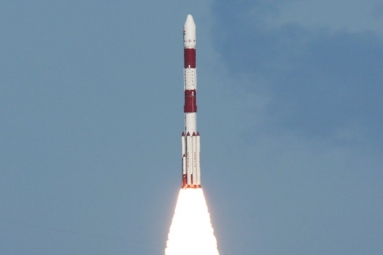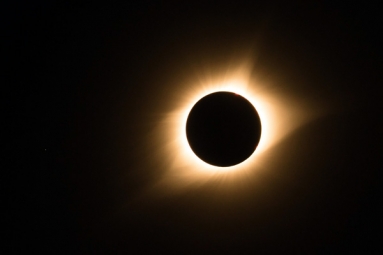Scientists have for the first time recreated the sound of lightning and whirlwinds from Mars and Venus and also how we would hear human voices on their surface.
A team from the University of Southampton, led by professor Tim Leighton, created these sounds and that of ice volcanoes on Saturn's moon, Titan, with the help of tools and techniques of physics and math.
They have also modelled the effects of different atmospheres, pressures and temperatures on the human voice on Mars, Venus and Titan (Saturn’s largest moon). They have developed unique software to transform the sound of a voice on earth to one that’s literally 'out of this world.'
Leighton, of the Southampton Institute for Sound and Vibration Research, says: "On Venus, the pitch of your voice would become much deeper. That is because the planet’s dense atmosphere means that the vocal cords vibrate more slowly through this 'gassy soup,'" adds Lieghton, according to a Southampton statement.
However, the speed of sound in Venus' atmosphere is much faster than it is on Earth, and this tricks the way our brain interprets the size of a speaker (whether an animal call in the night was something that was small enough to eat or so big as to be dangerous).
"When we hear a voice from Venus, we think the speaker is small, but with a deep bass voice. On Venus, humans sound like bass Smurfs.”
These sounds will be added to the ‘Flight Through the Universe’ shows this Easter at the Astrium Planetarium at INTECH near Winchester; it is thought to be a world first. Show dates are 4, 5, 11 and 13 April.








